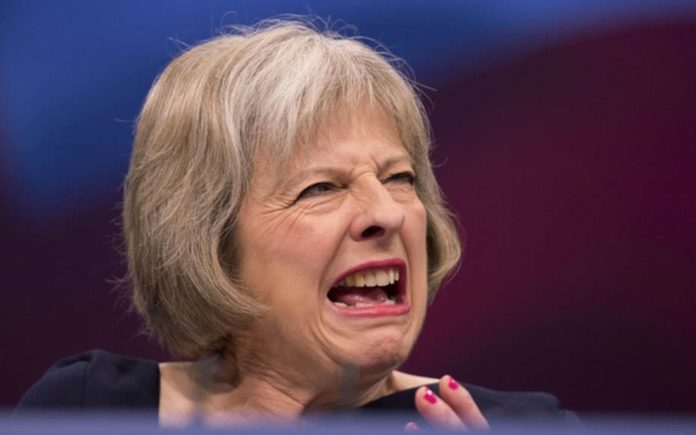Matthew Steeples suggests Theresa May is entirely right in her decision to reintroduce grammar schools
Don’t get me wrong: I loathe and detest Theresa May. She closed our police stations, she closed our fire stations and as Home Secretary she repeatedly failed to deliver justice for victims of historic abuse at the hands of politicians and their cronies.
Yesterday, however, she got it well and truly right. Writing of her own education, Mrs May stated:
Yesterday I laid out the first step of an ambitious plan to set Britain on the path to being the great meritocracy of the world.
It is a vision of a Britain where advantage is based on merit not privilege, talent not circumstance, hard work not background. It is a vision of a country where everyone plays by the same rules and ordinary, working class people have more control over their lives. A vision of a society where everyone has a fair chance to go as far as their talent and their hard work will allow.
And the plan I laid out yesterday – a good school place for every child that caters to their individual talents, abilities and needs – is the starting point: putting government firmly at the service of ordinary working class people and building a great meritocracy in our nation.
That means committing to the task of spreading opportunity, because when people lose a sense of opportunity they lose a sense of hope. So the changes I outlined to our school system yesterday – not just more school places but more good school places, not just more new schools but more good new schools catering to the needs and abilities of each individual child – are designed to spread opportunity across society.
Because at the moment, opportunity is too often the preserve of the wealthy or a quirk of circumstance. Those who can afford to can move near a good school, pay to go private or fund the extra tuition their child needs to succeed. Those with the right connections and contacts can get on, while those who have none simply cannot.
I want to correct this manifest unfairness. Giving every child the chance of a good education that’s right for them is the place to start. To do this – to deliver a good school place for every child – we will need to think differently. We will encourage and help our universities, faith groups such as the Catholic Church and independent schools to establish, sponsor or support new state schools. And yes, we will change the rules to allow for a new generation of grammar schools where there is demand and on the condition they act to raise outcomes for all pupils, particularly those from lower income households.
These New Grammars are important, because at the moment selection exists if you’re wealthy but doesn’t exist if you’re not. I want to change that. I know I was incredibly lucky when I was a young girl growing up. My education was varied: I went to a grammar school that became a comprehensive – and for a short time I attended a private school. I know too that my teachers made me the woman I am today.
I want every child to have the kind of opportunities that I enjoyed. I want every parent to have the peace of mind that comes with knowing their children will get the chance to go a great school. And I want every teacher and every school to have the resources and the capacity to deliver on those promises.
I know these things will not just happen overnight. They require bold decisions and a lot of hard work, and no doubt there will be opposition to overcome.
But as I set out yesterday, I am determined that we will build a school system that works for everyone. That is a hallmark of a truly meritocratic Britain.
She is spot on: It is time that the British education received the shakeup it truly needs.
Follow Matthew Steeples on Twitter at @M_Steeples.
Subscribe to our free once daily email newsletter here:[wysija_form id=”2″]








Matthew
I couldn’t disagree more.I failed my 11 plus so was judged too thick to go to a grammar school.
Luckily for me an experimental comprehensive was set up in South London, Tulse Hill, and I left with enough O and A levels to get a last minute place at Warwick University. Otherwise I would have been a clerk on London Transport not a journo on the Guardian. My education also made me pretty non conformist compared to some of my colleagues.
I went to a grammar school myself and benefited from it hugely. I was educated alonside boys from council estates and foreign royalty and the mix was simply superb.
I think that the ability to allow entry at different ages that Mrs May has suggested is a good thing and I think variety in education is an important thing.
I respect your belief to the contrary however and must say, the comprehensive you attended turned out a pretty fine gent.
I missed out on a place at a grammar school, so ended up at a comprehensive. Fortunately, it was one of the better schools in the area at the time. It streamed pupils according to ability, meaning that I ended up in the top set for subjects such as Maths, English, and Science.
However, that wasn’t the case with optional subjects. And I found it a lot harder to make progress in classes where pupils were lumped together regardless of ability. It may seem like a great socialist idea to treat all pupils the same. But I’m afraid the plain truth is that we are not all equal in terms of academic ability.
And therefore, I do support the idea of more grammar schools, as they’ll give children the opportunity to excel if they have the potential.
I believe in Grammar Schools, the selective process results in the pupil to worh and meethaving to meet criteria for entry. The cosequences for bad and unruly behaviour means losing your Grammar placement.
I believe in Grammar Schools. The selective process and meeting the criterion for entrance ensures that the learner does not take his/her education for granted. The consequences of bad or unruly behaviour will result in the learner losing their Grammar placement. Grammar Schools encourage excel.